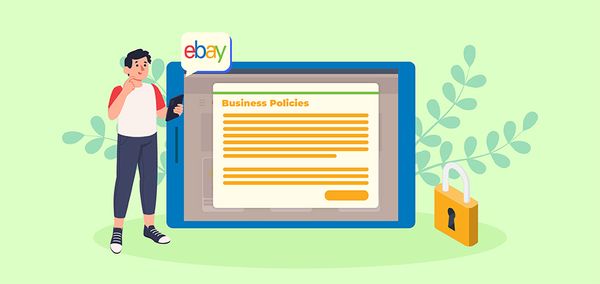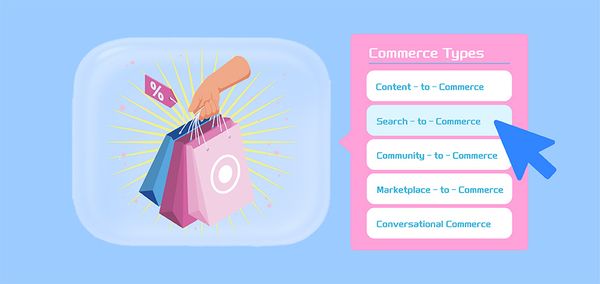Ecommerce Personalization: Enhance Customer Experience and Driving Sales

In an age where digital shopping has become more than just a convenience but a norm, standing out in the vast ocean of ecommerce platforms has never been more challenging. But what if there was a secret weapon that could make your online store not just another one in the crowd but a personalized shopping paradise for every customer?
That secret weapon is ecommerce personalization. As a savvy business owner or marketer, understanding the power of personalization and harnessing it to provide an exceptional shopping experience can help your ecommerce business achieve new heights. So, let's dive into the fascinating world of ecommerce personalization.
What Is Ecommerce Personalization
Ecommerce personalization is the process of delivering individualized shopping experiences to each customer based on their distinctive behaviors, preferences, and past interactions. It's like having a personal assistant who knows each customer's taste intimately and can suggest products that are perfectly tailored for them.
Imagine a personal shopper who remembers your favorite colors, styles, and sizes, and offers products that match these preferences exactly. Now think of that concept applied to an online store - that's ecommerce personalization. This level of individual attention has the potential to be immensely powerful for your business, taking customer engagement and conversion to new heights.

|
Find Better Supplier For Products DSers Supplier Optimizer - One click to filter out the most proper suppliers for your products |
To understand this in a more elaborate way, you can have a look at this data by McKinsey & Company that says post-pandemic, 75% of the consumers went for new consumer behavior and 71% of consumers expect personalization from a business. 76% of consumers actually get frustrated if they don’t find it! So, with the shift in consumer trends, it’s important that businesses upgrade their strategies and adopt personalization as the core of their marketing methods.
Types of Data Used for Personalization
The cornerstone of effective personalization is the data used to understand customer behaviors and preferences. Several types of data are critical for personalization, including browsing behavior, purchase history, and demographic information.
Browsing behavior can offer insights into what products a customer is interested in, the categories they frequent, and the type of content that engages them.
Purchase history provides a clear picture of what a customer likes to buy when they typically make purchases, and if there are any patterns or preferences in their buying behavior.
Demographic information like age, location, and gender can help businesses tailor their marketing efforts to specific customer segments. This multi-faceted data paints a comprehensive picture of a customer's preferences and buying habits, enabling businesses to personalize their approach effectively.
Benefits of Ecommerce Personalization
In the bustling online marketplace, it doesn’t matter if you are planning on how to get the first order for your new e-commerce site or if you have a well-functioning business, personalization can be the distinctive feature that sets your ecommerce platform apart. But what exactly does it offer? What are the concrete benefits for your business and customers? In this segment, we'll unpack the multitude of advantages that ecommerce personalization brings to your business strategy, from bolstering customer loyalty to amplifying conversion rates and curtailing cart abandonment rates.
1. Enhanced Customer Experience and Satisfaction
Ecommerce personalization significantly enriches the customer experience, making it more relevant and appealing. Imagine walking into a physical store, where everything has been arranged according to your tastes and preferences. The products you love are right at the front, and the store layout reflects your shopping habits. Sounds wonderful, right?
That's exactly what ecommerce personalization aims to achieve in the digital realm. It ensures every customer feels like the store has been specifically curated for them, augmenting their shopping experience and, in turn, enhancing their satisfaction.
2. Increased Customer Loyalty and Retention
Personalization is a potent tool to cultivate customer loyalty and retention by making customers feel valued and understood. It creates a personal bond between the brand and the customer, as customers feel recognized on an individual level. This familiarity encourages customers to return to your store, significantly boosting customer retention rates. It's like building a friendship based on understanding and mutual value.
3. Improved Conversion Rates and Sales
Personalization can bring about a dramatic surge in conversion rates and sales. By showcasing customer's products and offers tailored to their preferences and past shopping behavior, you are more likely to convert them into paying customers.
It's like employing a virtual salesperson who knows precisely what each customer desires and offers exactly that, resulting in increased conversions and sales.
4. Reduction in Cart Abandonment Rates
Cart abandonment is a perennial issue for ecommerce businesses. However, personalization can effectively combat this problem. Personalizing the shopping experience and offering products and deals that resonate with the customer's preferences make them less likely to abandon their carts midway.
It's as if you're holding their hand, guiding them from product selection to checkout, ensuring they complete the purchase.
5. Upselling and Cross-Selling Opportunities
Ecommerce personalization also creates numerous opportunities for upselling and cross-selling. By recommending complementary or higher-value items based on a customer's browsing and purchase history, you not only increase the cart value but also enhance the customer's shopping experience. It's akin to a personal stylist who understands your style and recommends items that elevate your wardrobe.
In essence, ecommerce personalization can act as a powerful catalyst for your business, improving customer experience, boosting sales, and creating a loyal customer base.
Key Personalization Tactics for Ecommerce
Having established the importance and benefits of ecommerce personalization, it's time to get into the thick of it. But where should you start? What are the tools and techniques that can help you personalize your customers' experience effectively?
In this part, we will explore the key personalization tactics you can employ in your ecommerce business. From personalized product recommendations to tailoring website content, we will provide a comprehensive guide on enhancing your customer's shopping journey.
Product Recommendations
- Collaborative filtering is a method of product recommendation based on similar behaviors of other users. It's like getting recommendations from friends who have similar tastes.
- Content-based filtering recommends products based on the similarity between the product features and the customer's profile. It's like a personal shopper who knows what you like.
- Hybrid recommendation systems combine collaborative and content-based filtering to offer the best of both worlds, resulting in more accurate product recommendations.
Personalized Email Marketing
- Segmentation based on customer behavior helps to send more targeted and relevant emails, thus increasing email engagement rates. It's like receiving emails from a friend who knows what you're interested in.
- Dynamic content and personalized subject lines make your emails more personal and engaging. It's like receiving a letter addressed specifically to you, wouldn't you want to open it?
Tailored Website Content
- Personalized landing pages make your website more relevant to each visitor, thereby increasing the chances of conversion. It's like walking into a store that changes its layout based on your preferences.
- Customizing product descriptions and images based on customer preferences makes your products more appealing. It's like having a product catalog designed specifically for you.
Adaptive Pricing and Discounts
- Dynamic pricing strategies adjust prices based on demand, competition, and customer behavior. It's like haggling in a market, but with algorithms doing the negotiation for you.
- Personalized discount offers increase the likelihood of purchase by making customers feel special. It's like receiving a surprise gift from a friend.
Customized Customer Service
- AI-driven chatbots offer personalized customer service by answering questions and providing recommendations based on customer behavior. It's like having a personal assistant available 24/7.
- Personalized support based on customer history makes customer service more efficient and effective. It's like talking to a customer service agent who knows you and understands your history with the brand.
Implementing Ecommerce Personalization
Understanding the benefits and tactics of ecommerce personalization is one thing, but implementing them into your business operation is another. It might seem like a daunting task at first but don't worry.
This section will guide you through the process of implementing ecommerce personalization. From collecting and analyzing data to choosing the right algorithms and integration with ecommerce platforms, we will break down the steps to ensure a smooth transition toward a more personalized ecommerce experience.
Collecting and Analyzing Data
Data collection is critical for ecommerce personalization, but privacy considerations are equally important. It's like being a detective who respects the rights and privacy of the subjects.
Data analytics tools are essential for analyzing and interpreting the data collected. They help you understand customer behavior and preferences better.
Implementing Personalization Algorithms
Collaborative filtering algorithms help in predicting a customer's interests based on the preferences of similar customers.
Machine learning models can be used to analyze and learn from historical data to predict future customer behavior and preferences.
Integrating Personalization with Ecommerce Platforms
Your personalization tools and strategies must be compatible with popular ecommerce platforms like Shopify, Magento, and DSers to ensure seamless integration.
Various plugins and tools are available that help in implementing personalization on ecommerce platforms. They help in making your website more engaging and relevant to each visitor. In fact, the Enterprise pricing plan of DSers also covers customization/ personalization services, offering more value at a lesser cost.
A/B Testing and Iterative Improvements
A/B testing is crucial for determining the effectiveness of different personalization strategies. It's like a scientific experiment where you test different variables to find the most effective solution.
Continuous optimization based on A/B testing results helps in achieving better results. It's like fine-tuning a machine for optimal performance.
Conclusion
Ecommerce personalization is not just a luxury but a necessity in today's highly competitive digital marketplace. It's a powerful tool that enhances the customer experience, drives sales, and nurtures customer loyalty. Whether you're a small business owner or a marketing executive at a large corporation, understanding and implementing ecommerce personalization can give you a significant edge in the market.












 Company
Company
 Why Choose DSers
Why Choose DSers
 Blog
Blog
 Help Center
Help Center




 Live Chat
Live Chat